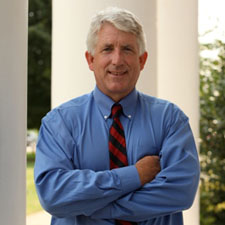
Beginning this week, billboards and signs are going up on major highways across the state, along with signage at every Virginia rest area, encouraging victims or those with information about possible human trafficking to contact the National Human Trafficking Resource Center’s hotline. In 2014, Virginia has had the fifth highest number of human trafficking cases referenced on the hotline, and experts believe human trafficking occurs in Virginia because of its location on the east coast, international air and sea ports, and large number of major interstates.
“The reality is that human trafficking is a growing problem across the country and internationally, and we cannot pretend that it doesn’t happen here in Virginia,” said Attorney General Herring. “By raising awareness about the existence and impact of human trafficking and promoting critical resources, we can help restore victims and seek justice against those who perpetrate this dehumanizing crime. Victims of human trafficking represent all ethnic and socio-economic backgrounds, which is why we have to broaden our understanding of who is at risk. For many years, the Office of Attorney General has been a leader in the fight against human trafficking, and we are proud to continue this important work.”
Human trafficking is a $150 billion dollar enterprise worldwide, and is widely considered one of the fastest growing criminal industries in the world. The United Nations’ International Labor Organization estimates that there are 20.9 million victims of human trafficking globally, with hundreds of thousands of victims here in the United States. According to a survey conducted by the Virginia Department of Criminal Justice Services, most victims in Virginia are women age 20-39 from the United States or Latin America. Eighty percent of the victims are forced into prostitution or household work and twenty percent are forced into labor-intensive jobs for little or no pay.
For the next nine months, billboards along major interstate highways will bear the message “Human Trafficking Exists in Virginia. Look Around You,” as well as the national hotline for victims of human trafficking: 1-888-373-7888 or by texting “HELP” or “INFO” to “BeFree” (233733.) These billboards, which will be seen by more than 1 million motorists every week, will be located on:
- I-81 near Harrisonburg (Northbound, MM243)
- I-95 in Richmond (Southbound, Maury St. Exit)
- I-95 near Fredericksburg (Northbound, MM115)
- I-64 in Newport News (Westbound, MM 255)
- I-664 in Hampton (Southbound, MM7)
(Billboard graphics 1, 2, 3, 4)
Additionally, stickers encouraging people to contact the hotline will be placed on mirrors in all 41 Virginia rest areas, serving 32 million motorists annually, and online advertisements, brochures, and posters are under development. Both the National Human Trafficking Resource Center hotline and BeFree texting helpline are operated by the non-profit Polaris Project.
The campaign is supported by a combination of federal grant funding administered by the Virginia Department of Criminal Justice Services, asset forfeiture funds administered by the Office of Attorney General, and in-kind donations of space by billboard owners Lamar Advertising.
In the last two years, the Office of Attorney General has conducted more than 50 trainings for local law enforcement and stakeholders to help them recognize the signs of human trafficking and successfully prosecute those who perpetrate it. In June, Attorney General Herring’s office hosted more than 100 law enforcement personnel, victim advocates, and service providers from across the state for a multi-day training conference in Richmond.
In November, Attorney General Herring joined 53 fellow state and territorial attorneys general in urging members of the U.S. Senate Judiciary Committee to support the Stop Advertising Victims of Exploitation Act (SAVE) Act (S. 2536), legislation that would help prevent children from being trafficked on the Internet. The federal legislation would require more oversight of websites that facilitate “adult services,” which often involve exploited youths and other victims of human trafficking.










